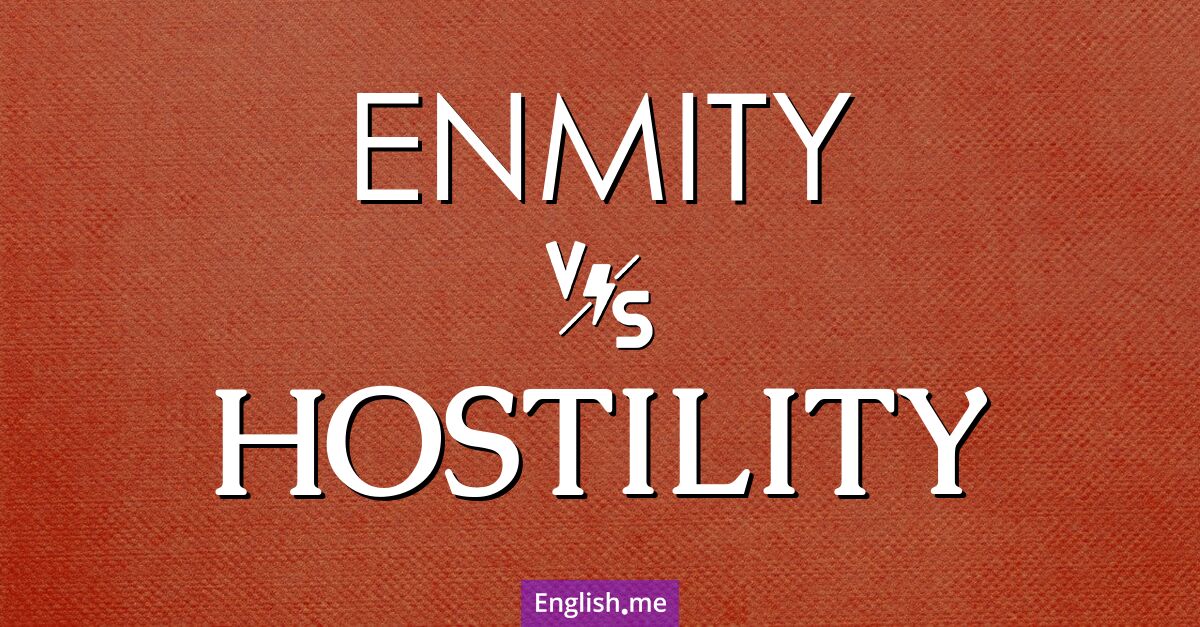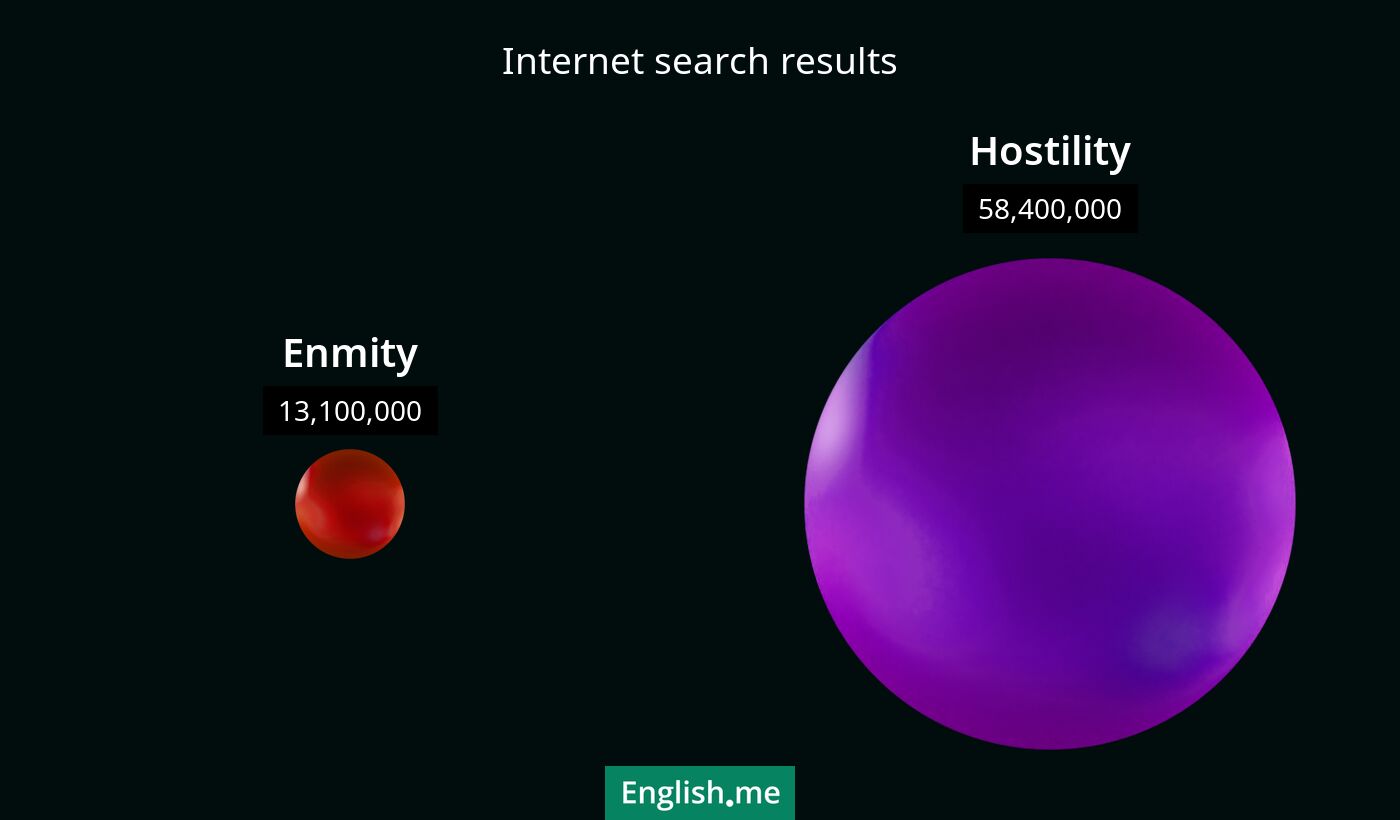"Enmity" vs. "hostility": shades of antagonism
Reviewed and edited by  Lloyd Cooper 05/02/2025, 18:48
Lloyd Cooper 05/02/2025, 18:48
English.me team member

 What is similar?
What is similar?
Both "enmity" and "hostility" refer to feelings of ill-will, animosity, or opposition towards someone or something. They describe negative attitudes that can lead to conflict or aggression.
 What is different?
What is different?
"Enmity" implies a deep-seated, long-standing mutual hatred or ill-will between parties, often enduring over time. It emphasizes a more profound and enduring state of mutual animosity. "Hostility" refers to unfriendly or antagonistic behavior or attitudes that may not be as deeply rooted or mutual. It can be one-sided and may also refer to acts of warfare or aggression in a broader context.
 Which one is more common?
Which one is more common?

 Examples of usage
Examples of usage
Enmity- The longstanding enmity between the two families had lasted for generations.
- Despite their past enmity, they decided to work together for the common good.
- Political enmity can hinder progress and collaboration.
- She was surprised by the hostility in his voice.
- The proposal was met with hostility from the committee members.
- They called for a ceasefire to end the hostilities in the region.

 English
English español
español française
française italiano
italiano deutsche
deutsche 日本語
日本語 polski
polski česky
česky svenska
svenska Türkçe
Türkçe Nederlands
Nederlands